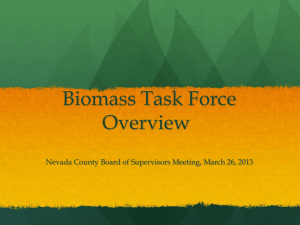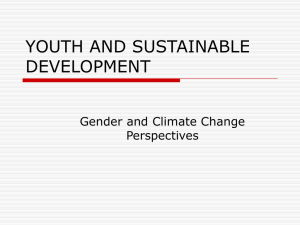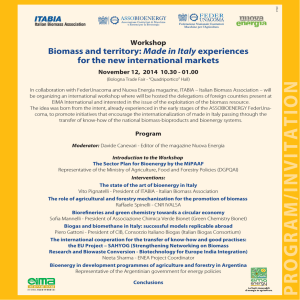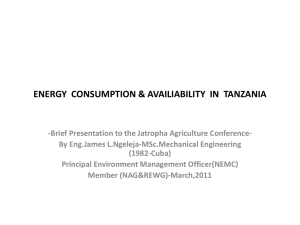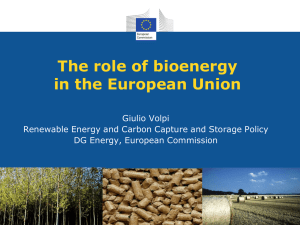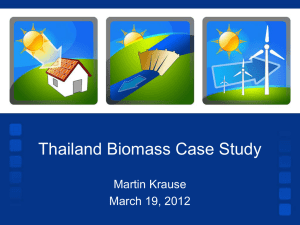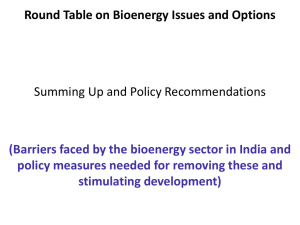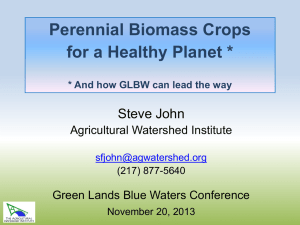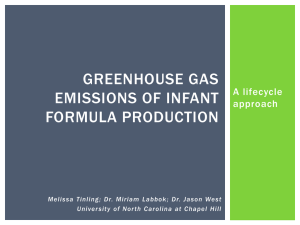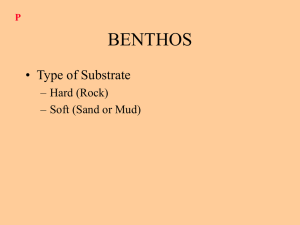Resource Efficiency Policies for Land Use Related Climate
advertisement
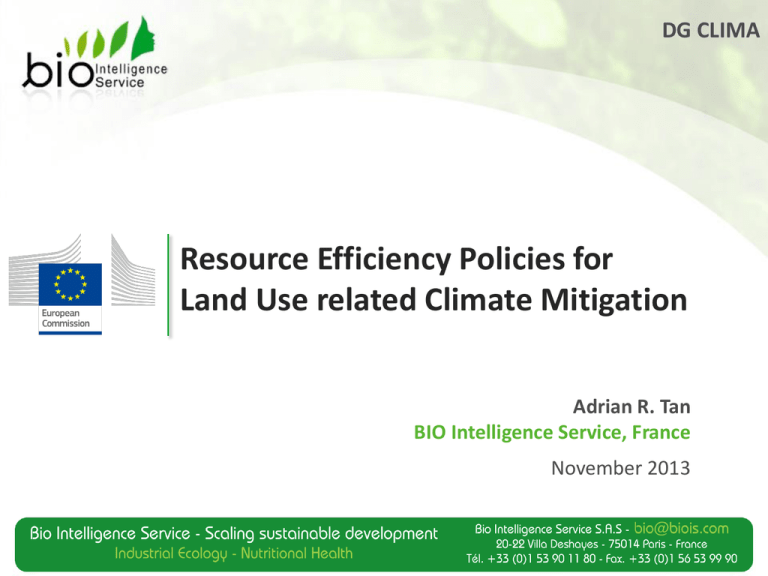
DG CLIMA Resource Efficiency Policies for Land Use related Climate Mitigation Adrian R. Tan BIO Intelligence Service, France November 2013 DG CLIMA: RE Pol 4 Land Study objectives and scope Study objectives – To propose a policy framework for the European Commission suited to simultaneously: • minimising land use related greenhouse gas emissions and • maximising carbon removals • while allowing economic development and increased well-being Mitigation options – The use of land: • for biomass production for fossil energy substitution; • for biomass production for material/product substitution related to harvested wood products; • for biomass production for material/product substitution related to bio-materials/biochemicals (other than harvested wood); • in a way which increases the overall stocks of terrestrial carbon in soils, above and below ground living biomass, and in litter/dead organic matter. 2 DG CLIMA: RE Pol 4 Land Resource efficiency and land use related climate mitigation Land use related climate mitigation • Reduce GHG emissions • Avoid GHG emissions • Sequester/remove carbon Biomass supply Land use Biomass demand Land demand Land use change Change of the functionality of land and its ecosystem services 3 DG CLIMA: RE Pol 4 Land Resource efficiency and land use related climate mitigation Substituting the use of other resources with biomass, e.g.: Increasing the resource efficiency of biomass, e.g.: Diet shift Bioenergy Biomaterials Biochemicals Biomass supply Sustainable agriculture and forestry management, e.g.: Increasing productivity Increasing carbon stocks (e.g. soil carbon sequestration) Reducing GHG emissions (e.g. crop rotation, tillage, manure and livestock management) Biomass demand Cascading use (reuse, recycling and recovery) Reducing waste and losses Avoiding landfilling Increasing the use of biomass products and infrastructure Land demand Land protection and restoration, e.g.: Land use Land use change Change of the functionality of land and its ecosystem services Maintaining carbon stocks (e.g. reducing deforestation and conversion of wetlands and peatlands) Increasing carbon sequestration (e.g. afforestation, reforestation and other types of compensation) 4 DG CLIMA: RE Pol 4 Land Resource efficiency and land use related climate mitigation Substituting the use of other resources with biomass, e.g.: Diet shift Bioenergy Biomaterials Biochemicals Biomass supply Sustainable agriculture and forestry management, e.g.: Increasing the resource efficiency of biomass, e.g.: Reduces GHG emissions Biomass demand Cascading use (reuse, recycling and recovery) Reducing waste and losses Avoiding landfilling Increasing the use of biomass products and infrastructure Land demand Land protection and restoration, e.g.: Maintaining carbon stocks (e.g. reducing deforestation Increasing productivity and conversion of wetlands Increasing carbon stocks and peatlands) (e.g. soil carbon Avoids GHG Increasing carbon sequestration) Reduces GHG Reducing GHG emissions emissions and sequestration (e.g. emissions and afforestation, reforestation (e.g. crop rotation, sequesters carbon Change of the functionality of sequesters carbon and other types of tillage, manure and compensation) livestock management) land and its ecosystem services Land use Land use change 5 DG CLIMA: RE Pol 4 Land Study tasks Study tasks 1. Trends and current situation of land use and related GHG emissions and removals • Including analysis of key drivers 2. Elaboration of a baseline scenario for land use and related GHG emissions and removals • Including sensitivity of key parameters/drivers 3. Analysis of measures and policy options • Including identification of greatest potential and effectiveness 4. Elaboration of an integrated policy framework for land use related climate mitigation 6 DG CLIMA: RE Pol 4 Land Contribute to the study What land use related measures and policy instruments could be proposed to mitigate climate change? • • • • In the EU? EU’s influence on the rest of the world through biomass demand and policy? What are the priority areas? What are the trade-offs? E.g. intensification vs. extensification – Please provide any information and evidence on the potential and effectiveness of measures and policy instruments Study is on-going until June 2014 7 Contact BIO Intelligence Service Adrian Tan (adrian.tan@biois.com) Tel: +33 1 53 90 11 80 8


